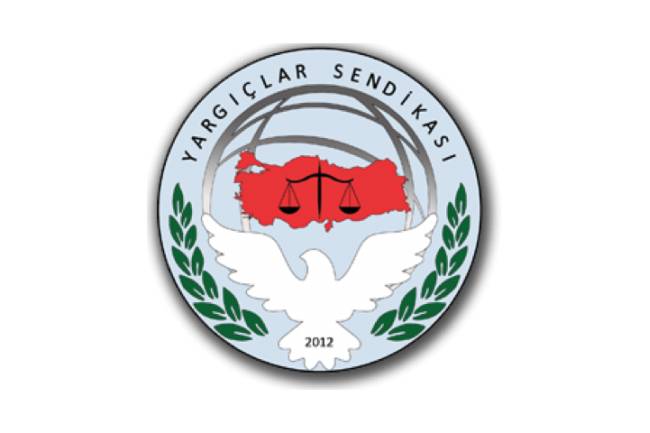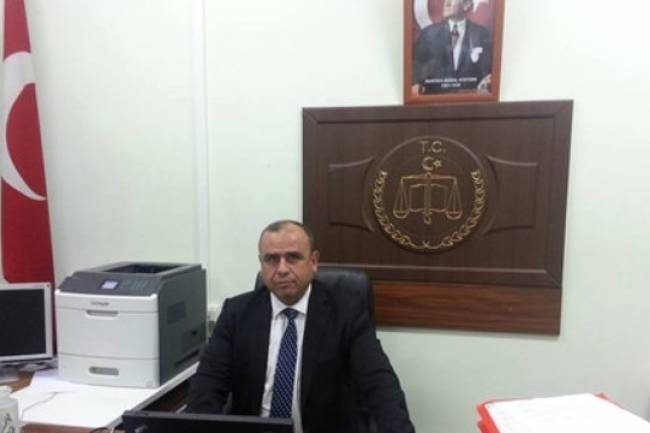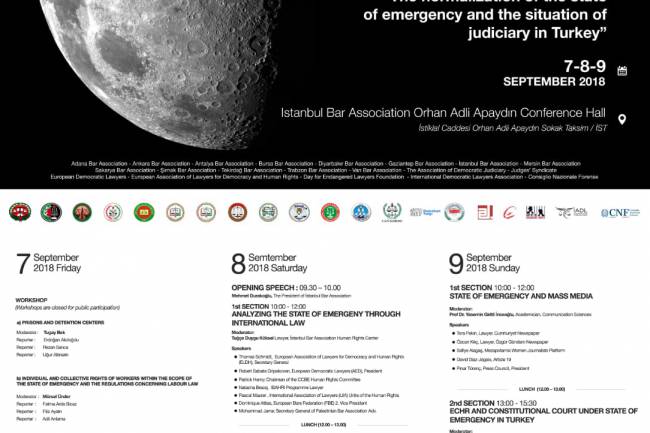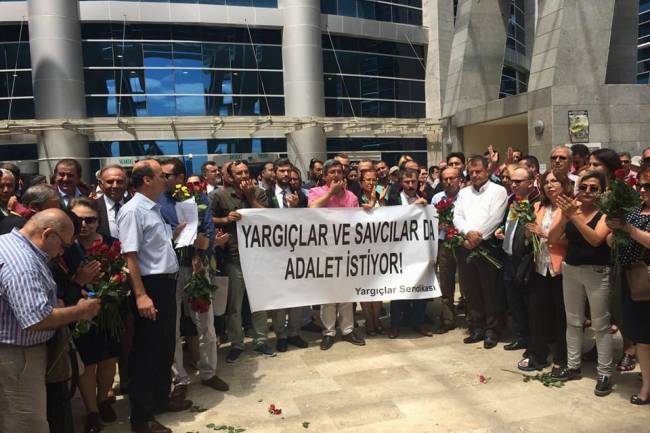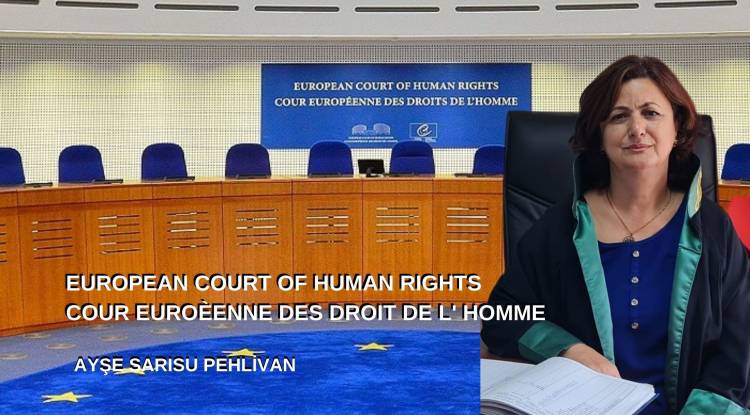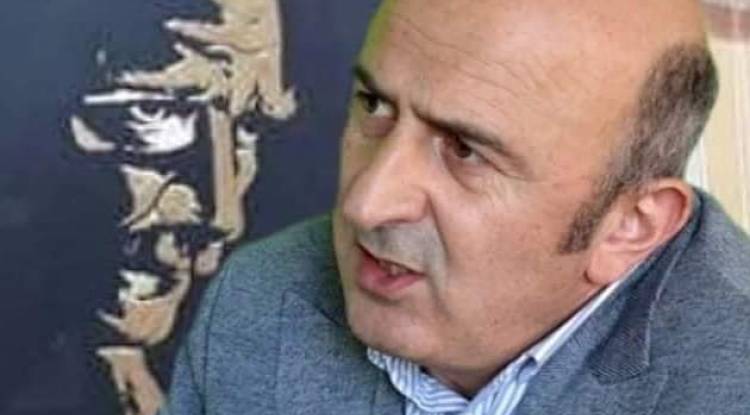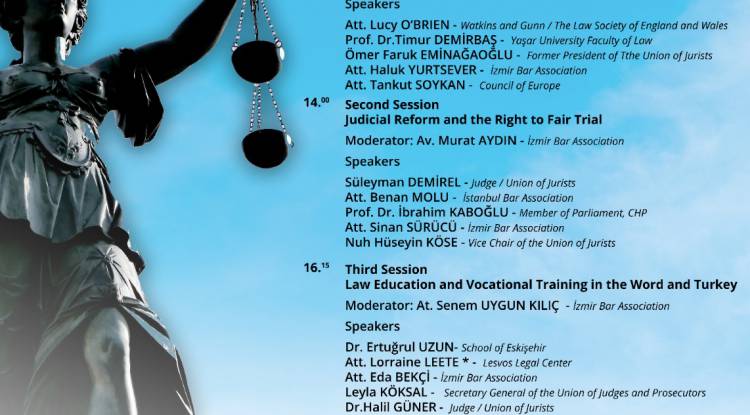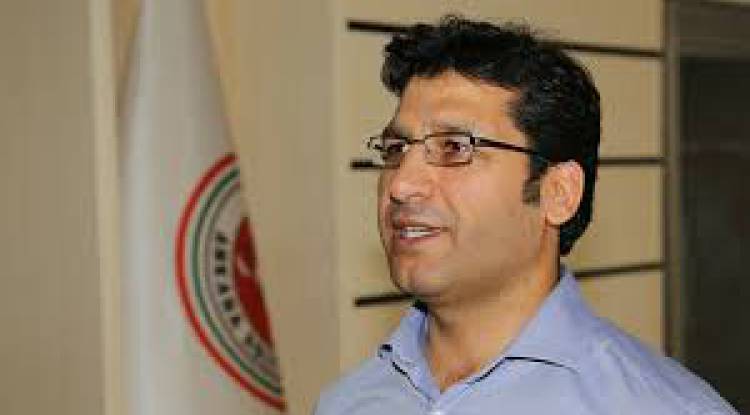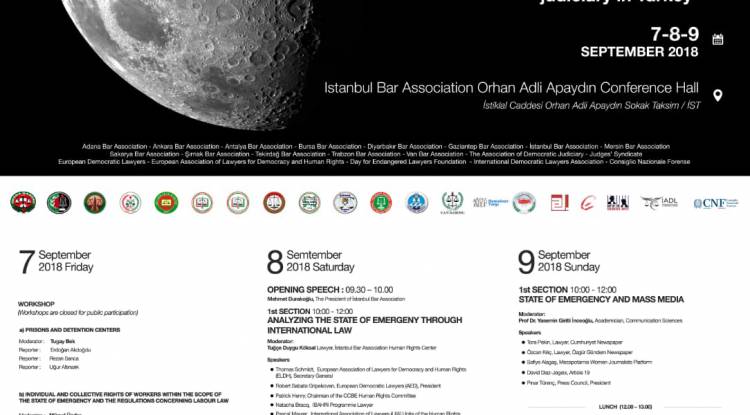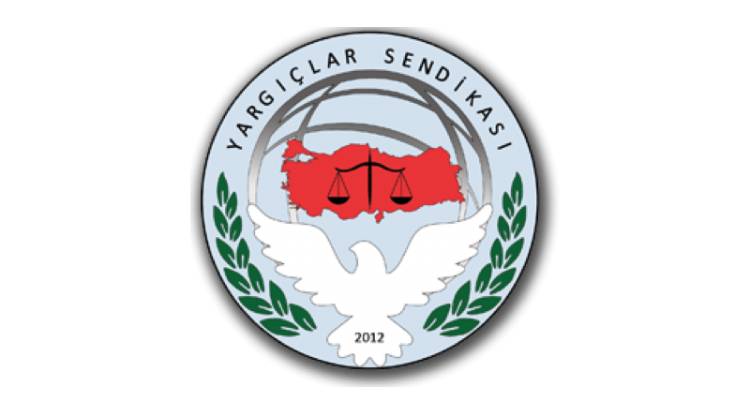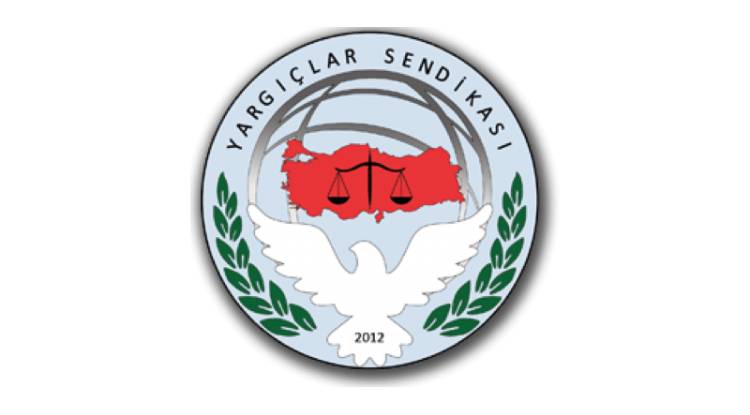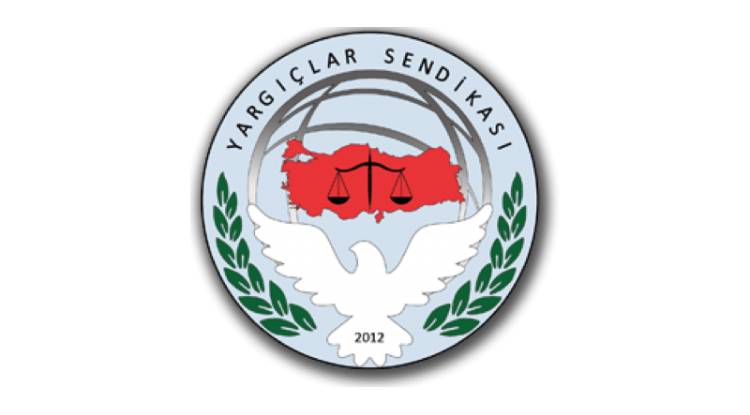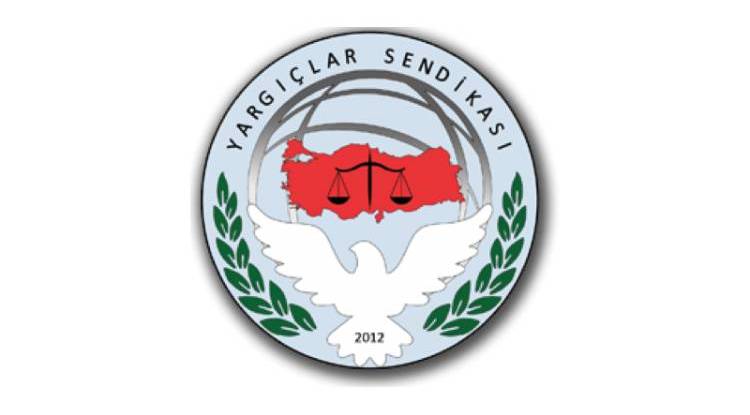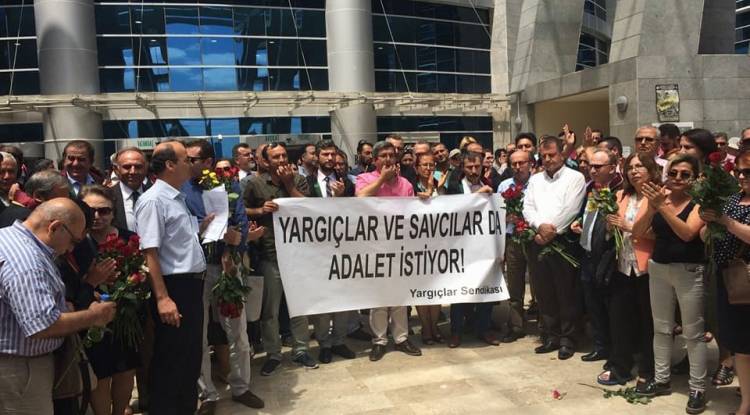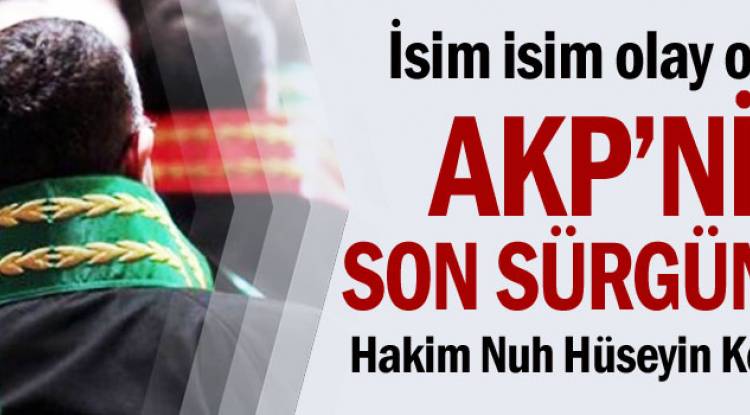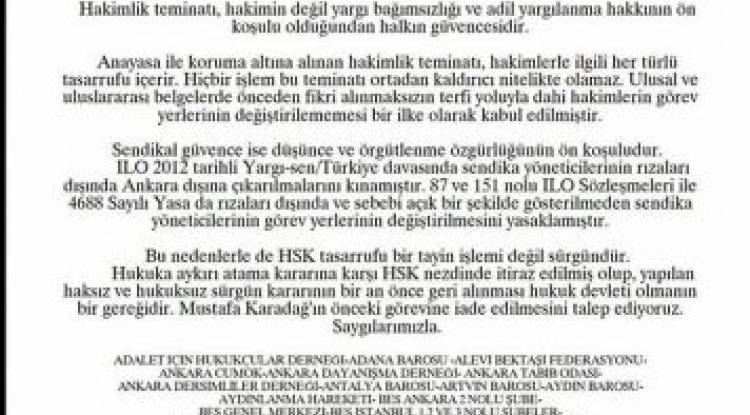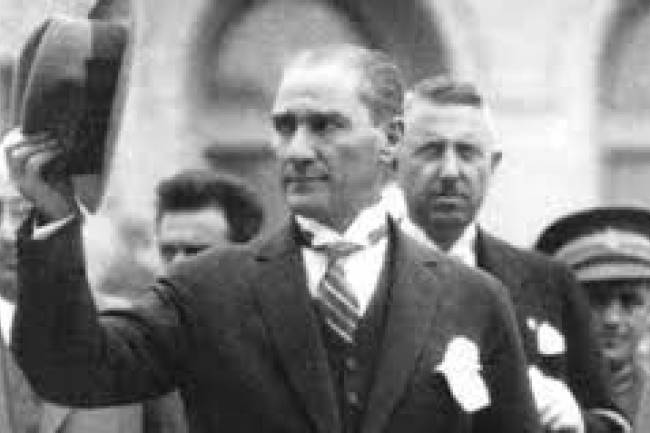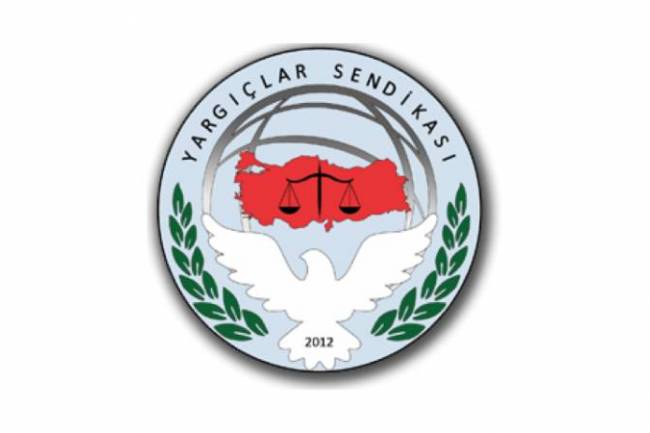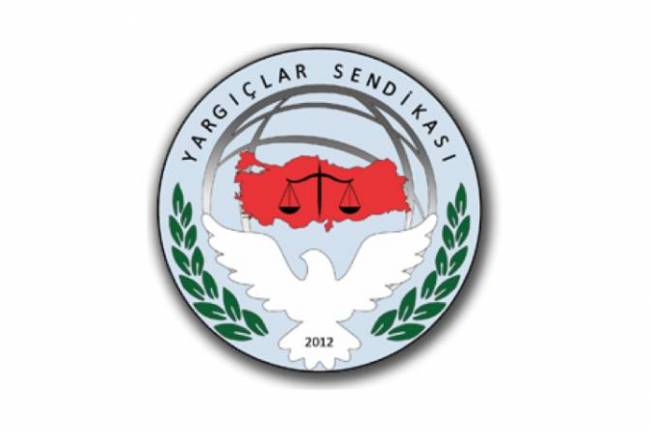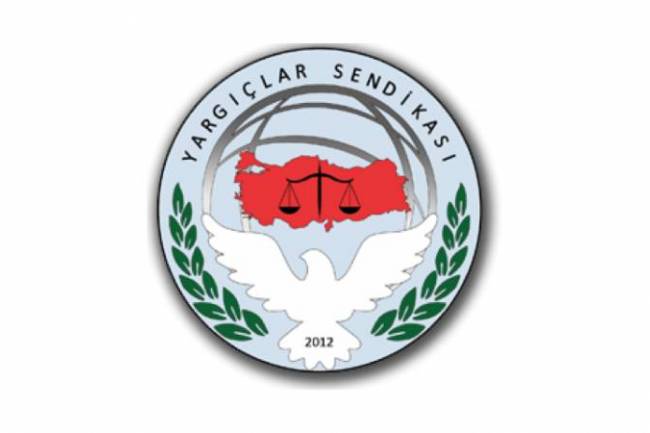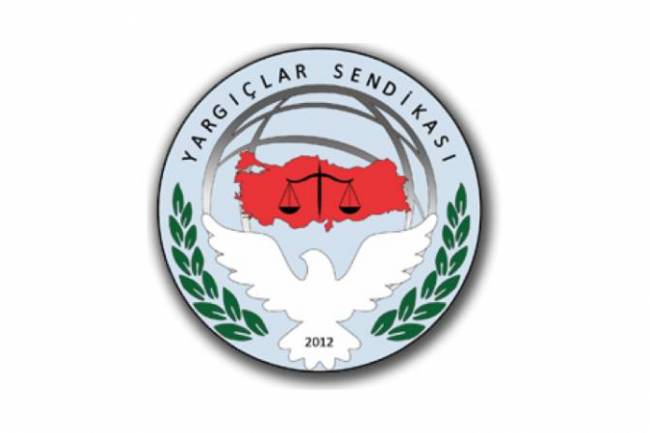Turkish Constitution
CONSTITUTION OF
THE REPUBLIC OF TURKEY
IV
CONSTITUTION OF
THE REPUBLIC OF TURKEY
PREAMBLE 1
PART ONE
General Principles
I. Form of the State 3
II. Characteristics of the Republic 3
III. Integrity, official language, flag, national anthem,
and capital of the State.......................................................... 3
IV. Irrevocable provisions........................................................... 3
V. Fundamental aims and duties of the State........................... 3 V
VI. Sovereignty............................................................................ 4
VII. Legislative power................................................................... 4
VIII. Executive power and function............................................... 4
IX. Judicial power........................................................................ 4
X. Equality before the law ......................................................... 4
XI. Supremacy and binding force of the Constitution............... 5
PART TWO
Fundamental Rights and Duties
CHAPTER ONE
General Provisions
I. Nature of fundamental rights and freedoms 5
II. Restriction of fundamental rights and freedoms 5
III. Prohibition of abuse of fundamental rights and
freedoms 6
IV. Suspension of the exercise of fundamental rights and
freedoms 6
V. Status of aliens 7
CHAPTER TWO
Rights and Duties of the Individual
I. Personal inviolability, corporeal and spiritual existence
of the individual 7
II. Prohibition of forced labour 7
III. Personal liberty and security 8
IV. Privacy and protection of private life 9
A. Privacy of private life 9
B. Inviolability of the domicile 10
C. Freedom of communication 10
V. Freedom of residence and movement 11
VI. Freedom of religion and conscience 11
VI VII. Freedom of thought and opinion 12
VIII. Freedom of expression and dissemination of thought 12
IX. Freedom of science and the arts 13
X. Provisions relating to the press and publication 13
A. Freedom of the press 13
B. Right to publish periodicals and non-periodicals 14
C. Protection of printing facilities 15
D. Right to use media other than the press owned by public
corporations 15
E. Right of rectification and reply 15
XI. Rights and freedoms of assembly 15
A. Freedom of association 15
B. Right to hold meetings and demonstration marches 16
XII. Right to property 17
XIII. Provisions on the protection of rights 17
A. Freedom to claim rights................................................. 17
B. Principle of natural judge............................................... 17
C. Principles relating to offences and penalties................. 17
XIV. Right to prove an allegation................................................ 18
XV. Protection of fundamental rights and freedoms................ 18
CHAPTER THREE
Social and Economic Rights and Duties
I. Protection of the family, and children’s rights................... 19
II. Right and duty of education............................................... 19
III. Public interest..................................................................... 20
A. Utilization of the coasts.................................................. 20
B. Land ownership.............................................................. 21
C. Protection of agriculture, animal husbandry, and persons
engaged in these activities.............................................. 21
D. Expropriation................................................................. 21 VII
E. Nationalization and privatization................................. 22
IV. Freedom of work and contract............................................ 22
V. Provisions relating to labour.............................................. 23
A. Right and duty to work................................................... 23
B. Working conditions and right to rest and leisure......... 23
C. Right to organize unions................................................ 23
D. Activities of unions......................................................... 24
VI. Collective labour agreement, right to strike, and lockout.... 24
A. Rights of collective labour agreement and collective
agreement....................................................................... 24
B. Right to strike, and lockout............................................ 25
VII. Provision of fair wage......................................................... 25
VIII. Health, the environment and housing................................ 26
A. Health services and protection of the environment...... 26
B. Right to housing............................................................. 26
IX. Youth and sports 26
A. Protection of the youth 26
B. Development of sports and arbitration 27
X. Social security rights 27
A. Right to social security 27
B. Persons requiring special protection in the field of social
security 27
XI. Protection of historical, cultural and natural assets 28
XII. Protection of arts and artists 28
XIII. The extent of social and economic duties of the State 28
CHAPTER FOUR
Political Rights and Duties
I. Turkish citizenship 29
II. Right to vote, to be elected and to engage in political
activity 29
VIII III. Provisions relating to political parties 30
A. Forming parties, membership and withdrawal from
membership in a party 30
B. Principles to be observed by political parties 31
IV. Right to enter public service 32
A. Entry into public service 32
B. Declaration of assets 33
V. National service 33
VI. Duty to pay taxes 33
VII. Right of petition, right to information and appeal to the
Ombudsperson 33
PART THREE
Fundamental Organs of the Republic
CHAPTER ONE
Legislative Power
I. The Grand National Assembly of Turkey............................ 34
A. Composition................................................................... 34
B. Eligibility to be a deputy................................................. 35
C. Election term of the Grand National Assembly of
Turkey............................................................................. 35
D. Deferment of elections for the Grand National Assembly
of Turkey and by-elections............................................. 36
E. General administration and supervision of elections... 36
F. Provisions relating to membership................................ 37
1. Representing the nation............................................. 37
2. Oath-taking................................................................ 37 IX
3. Activities incompatible with membership................ 38
4. Parliamentary immunity........................................... 38
5. Loss of membership................................................... 39
6. Application for annulment........................................ 40
7. Salaries and travel allowances.................................... 40
II. Duties and powers of the Grand National Assembly of
Turkey 40
A. General 40
B. Introduction and deliberation of bills 41
C. Promulgation of laws by the President of the Republic.. 41
D. Ratification of international treaties 41
E. Authorization to issue decrees having the force of law 42
F. Declaration of state of war and authorization to deploy ..
the armed forces 43
III. Provisions relating to the activities of the Grand
National Assembly of Turkey 44
A. Convening and recess 44
B. Bureau of the Assembly 44
C. Rules of Procedure, political party groups and security
affairs 45
D. Quorums and majority for decisions 46
E. Publicity and publication of debates 46
IV. Ways of obtaining information and supervision by the
Grand National Assembly of Turkey 46
A. General 46
B. Censure 47
C. Parliamentary investigation 47
CHAPTER TWO
The Executive Power
X I. President of the Republic 48
A. Qualifications and impartiality 48
B. Election 49
C. Oath-taking 50
D. Duties and powers 50
E. Presidential accountability and non-accountability 52
F. Acting for the President of the Republic 52
G. General Secretariat of the President of the Republic 53
H. State Supervisory Council 53
II. Council of Ministers 53
A. Formation 53
B. Taking office and vote of confidence 54
C. Vote of confidence while in office 54
D. Functions and political responsibilities 54
E. The formation of ministries, and ministers 55
F. Provisional Council of Ministers during elections 55
G. Regulations 56
H. Renewal of elections to the Grand National Assembly of
Turkey by the President of the Republic 56
1. Offices of Commander-in-Chief and Chief of the
General Staff 57
2. National Security Council 57
III. Extraordinary administration procedures 58
A. States of emergency 58
1. Declaration of state of emergency because of natural
disaster or serious economic crisis 58
2. Declaration of state of emergency because of widespread acts of violence and serious deterioration
of public order............................................................ 58
3. Rules regarding the states of emergency................... 59
B. Martial law, mobilization and state of war.................... 59 XI
IV. Administration 61
....................................................................
A. Fundamentals of the administration............................. 61
1. Integrity of the administration and public legal
personality ................................................................. 61
2. By-laws....................................................................... 61
B. Judicial review................................................................. 61
C. Establishment of the administration............................. 62
1. Central administration.............................................. 62
2. Local administrations................................................ 62
D. Provisions relating to public servants............................ 63
1. General principles ..................................................... 63
2. Duties and responsibilities, and guarantees in
disciplinary proceedings............................................ 64
E. Institutions of higher education and their higher
bodies.............................................................................. 64
1. Institutions of higher education 64
2. Superior bodies of higher education 66
3. Institutions of higher education subject to special
provisions 67
F. Radio and Television Supreme Council, institutions of
radio and television, and public affiliated news
agencies 67
G. The Atatürk High Institution of Culture, Language and
History 67
H. Professional organizations having the characteristics of
public institutions 68
I. Presidency of Religious Affairs 69
J. Unlawful order 69
CHAPTER THREE
Judicial Power
I. General provisions 70
XII A. Independence of the courts 70
B. Security of tenure of judges and public prosecutors 70
C. Judges and public prosecutors 70
D. Publicity of hearings and the necessity of justification
for verdicts 71
E. Formation of courts 72
F. State Security Courts 72
G. Supervision of judicial services 72
H. Military justice 72
II. Higher courts 73
A. Constitutional Court 73
1. Formation 73
2. Term of office of the members and termination of .....
membership 75
3. Functions and powers 75
4. Procedure of functioning and trial 77
5. Annulment action 78
6. Time limit for annulment action 78
7. Claim of unconstitutionality before other courts 78
8. Decisions of the Constitutional Court 79
B. High Court of Appeals 80
C. Council of State 80
D. High Military Court of Appeals 81
E. High Military Administrative Court 82
F. Court of Jurisdictional Disputes 82
III. High Council of Judges and Prosecutors 83
IV. Court of Accounts 86
PART FOUR
Financial and Economic Provisions XIII
CHAPTER ONE
Financial Provisions
I. Budget 87
A. Preparation and implementation of the budget 87
B. Debate on the budget 87
C. Principles governing budgetary amendments 88
D. Final accounts 88
E. Scrutiny of state economic enterprises 89
CHAPTER TWO
Economic Provisions
I. Planning; Economic and Social Council 89
II. Supervision of markets and regulation of foreign trade 90
III. Exploration and exploitation of natural resources 90
IV. Forests and the forest villagers 90
A. Protection and development of forests 90
B. Protection of forest villagers 91
V. Developing cooperativism 91
VI. Protection of consumers, tradespeople and artisans 92
A. Protection of consumers 92
B. Protection of tradespeople and artisans 92
PART FIVE
Miscellaneous Provisions
I. Preservation of Reform Laws 92
PART SIX
Provisional Articles
XIV PROVISIONAL ARTICLE 1 ................................................... 93
PROVISIONAL ARTICLE 2 ................................................... 93
PROVISIONAL ARTICLE 3 ................................................... 95
PROVISIONAL ARTICLE 4 ................................................... 95
PROVISIONAL ARTICLE 5 ................................................... 95
PROVISIONAL ARTICLE 6 ................................................... 95
PROVISIONAL ARTICLE 7 ................................................... 95
PROVISIONAL ARTICLE 8.................................................... 95
PROVISIONAL ARTICLE 9.................................................... 96
PROVISIONAL ARTICLE 10.................................................... 96
PROVISIONAL ARTICLE 11.................................................... 96
PROVISIONAL ARTICLE 12...................................................... 96
PROVISIONAL ARTICLE 13...................................................... 97
PROVISIONAL ARTICLE 14...................................................... 97
PROVISIONAL ARTICLE 15...................................................... 97
PROVISIONAL ARTICLE 16 ................................................... 97
PROVISIONAL ARTICLE 17 .................................................... 97
PROVISIONAL ARTICLE 18 .................................................... 98
PROVISIONAL ARTICLE 19 .................................................. 100
PART SEVEN
Final Provisions
I. Amending the Constitution, participation in elections
and referenda 104
II. Preamble and headings of articles 105
III. Entry into force of the Constitution 106
XV
XVI
CONSTITUTION OF THE REPUBLIC
OF TURKEY1
PREAMBLE
(As amended on July 23, 1995; Act No. 4121)
Affirming the eternal existence of the Turkish Motherland and Nation and the indivisible unity of the Sublime Turkish State, this Constitution, in line with the concept of nationalism introduced by the founder of the Republic of Turkey, Atatürk, the immortal leader and the unrivalled hero, and his reforms and principles;
Determining to attain the everlasting existence, prosperity,
material and spiritual well-being of the Republic of Turkey, and the
standards of contemporary civilization as an honourable member
with equal rights of the family of world nations;
The absolute supremacy of the will of the nation, the fact that 1
sovereignty is vested fully and unconditionally in the Turkish Nation and that no individual or body empowered to exercise this sovereignty in the name of the nation shall deviate from the liberal democracy indicated in the Constitution and the legal system instituted according to its requirements,
The separation of powers, which does not imply an order of precedence among the organs of the State, but refers solely to the exercising of certain state powers and discharging of duties, and is limited to a civilized cooperation and division of functions; and the fact that only the Constitution and the laws have the supremacy;
(As amended on October 3, 2001; Act No. 4709) That no protection shall be accorded to an activity contrary to Turkish national interests, Turkish existence and the principle of its indivisibility with
1 The Constitution was adopted by the Constituent Assembly on October
18, 1982 to be submitted to referendum and published in the Official
Gazette dated October 20, 1982 and numbered 17844; republished in the repeating Official Gazette dated November 9, 1982 and numbered 17863 in the aftermath of its submission to referendum on November 7, 1982 (Act No. 2709).
its State and territory, historical and moral values of Turkishness; the nationalism, principles, reforms and civilizationism of Atatürk and that sacred religious feelings shall absolutely not be involved in state affairs and politics as required by the principle of secularism;
That every Turkish citizen has an innate right and power, to lead an honourable life and to improve his/her material and spiritual well-being under the aegis of national culture, civilization, and the rule of law, through the exercise of the fundamental rights and freedoms set forth in this Constitution, in conformity with the requirements of equality and social justice;
That all Turkish citizens are united in national honour and pride, in national joy and grief, in their rights and duties regarding national existence, in blessings and in burdens, and in every manifestation of national life, and that they have the right to demand a peaceful life based on absolute respect for one another’s rights and freedoms, mutual love and fellowship, and the desire for and belief in “Peace at home; peace in the world”;
With these IDEAS, BELIEFS, and RESOLUTIONS to be
2 interpreted and implemented accordingly, thus commanding respect for, and absolute loyalty to, its letter and spirit;
Has been entrusted by the TURKISH NATION to the democracy-loving Turkish sons’ and daughters’ love for the motherland and nation.
PART ONE
General Principles
I. Form of the State
II. Characteristics of the Republic
ARTICLE 2- The Republic of Turkey is a democratic, secular and social state governed by rule of law, within the notions of public peace, national solidarity and justice, respecting human rights, loyal to the nationalism of Atatürk, and based on the fundamental tenets set forth in the preamble.
III. Integrity, official language, flag, national anthem, and capital of the State
ARTICLE 3- The State of Turkey, with its territory and
nation, is an indivisible entity. Its language is Turkish.
Its flag, the form of which is prescribed by the relevant law, is
composed of a white crescent and star on a red background.
Its national anthem is the “Independence March”. 3
Its capital is Ankara.
IV. Irrevocable provisions
ARTICLE 4- The provision of Article 1 regarding the form
of the State being a Republic, the characteristics of the Republic in Article 2, and the provisions of Article 3 shall not be amended, nor shall their amendment be proposed.
V. Fundamental aims and duties of the State
ARTICLE 5- The fundamental aims and duties of the State are to safeguard the independence and integrity of the Turkish Nation, the indivisibility of the country, the Republic and democracy, to ensure the welfare, peace, and happiness of the individual and society; to strive for the removal of political, economic, and social obstacles which restrict the fundamental rights and freedoms of the individual in a manner incompatible with the principles of justice and of the social state governed by rule of law; and to provide the conditions required for the development of the individual’s material and spiritual existence.
VI. Sovereignty
ARTICLE 6- Sovereignty belongs to the Nation without any restriction or condition.
The Turkish Nation shall exercise its sovereignty through the authorized organs, as prescribed by the principles set forth in the Constitution.
The exercise of sovereignty shall not be delegated by any means to any individual, group or class. No person or organ shall exercise any state authority that does not emanate from the Constitution.
VII. Legislative power
ARTICLE 7- Legislative power is vested in the Grand National Assembly of Turkey on behalf of Turkish Nation. This power shall not be delegated.
VIII. Executive power and function
ARTICLE 8- Executive power and function shall be exercised and carried out by the President of the Republic and the
4 Council of Ministers in conformity with the Constitution and laws.
IX. Judicial power
ARTICLE 9- Judicial power shall be exercised by independent courts on behalf of the Turkish Nation.
X. Equality before the law
ARTICLE 10- Everyone is equal before the law without distinction as to language, race, colour, sex, political opinion, philosophical belief, religion and sect, or any such grounds.
(Paragraph added on May 7, 2004; Act No. 5170) Men and women have equal rights. The State has the obligation to ensure that this equality exists in practice. (Sentence added on September 12, 2010; Act No. 5982) Measures taken for this purpose shall not be interpreted as contrary to the principle of equality.
(Paragraph added on September 12, 2010; Act No. 5982) Measures to be taken for children, the elderly, disabled people, widows and orphans of martyrs as well as for the invalid and veterans shall not be considered as violation of the principle of equality.
No privilege shall be granted to any individual, family, group or class.
State organs and administrative authorities are obliged to act in compliance with the principle of equality before the law in all their proceedings.2
XI. Supremacy and binding force of the Constitution
ARTICLE 11- The provisions of the Constitution are fundamental legal rules binding upon legislative, executive and judicial organs, and administrative authorities and other institutions and individuals.
Laws shall not be contrary to the Constitution.
PART TWO
Fundamental Rights and Duties
CHAPTER ONE
General Provisions 5
I. Nature of fundamental rights and freedoms
ARTICLE 12- Everyone possesses inherent fundamental
rights and freedoms, which are inviolable and inalienable.
The fundamental rights and freedoms also comprise the duties
and responsibilities of the individual to the society, his/her family,
and other individuals.
II. Restriction of fundamental rights and freedoms ARTICLE 13- (As amended on October 3, 2001; Act No.
4709)
Fundamental rights and freedoms may be restricted only by law and in conformity with the reasons mentioned in the relevant articles of the Constitution without infringing upon their essence.
2 The phrase “and in benefiting from all kinds of public services” was added after the phrase “in all their proceedings” by the first Article of Act No. 5735 dated February 9, 2008 and annulled by the decision of the Constitutional Court dated June 5, 2008 numbered E. 2008/16, K. 2008/116 (Official Gazette numbered 27032 of October 22, 2008).
These restrictions shall not be contrary to the letter and spirit of the Constitution and the requirements of the democratic order of the society and the secular republic and the principle of proportionality.
III. Prohibition of abuse of fundamental rights and
freedoms
ARTICLE 14- (As amended on October 3, 2001; Act No.
4709)
None of the rights and freedoms embodied in the Constitution shall be exercised in the form of activities aiming to violate the indivisible integrity of the State with its territory and nation, and to endanger the existence of the democratic and secular order of the Republic based on human rights.
No provision of this Constitution shall be interpreted in a manner that enables the State or individuals to destroy the fundamental rights and freedoms recognized by the Constitution or to stage an activity with the aim of restricting them more extensively than stated in the Constitution.
6 The sanctions to be applied against those who perpetrate activities contrary to these provisions shall be determined by law.
IV. Suspension of the exercise of fundamental rights and freedoms
ARTICLE 15- In times of war, mobilization, martial law, or a state of emergency, the exercise of fundamental rights and freedoms may be partially or entirely suspended, or measures derogating the guarantees embodied in the Constitution may be taken to the extent required by the exigencies of the situation, as long as obligations under international law are not violated.
(As amended on May 7, 2004; Act No. 5170) Even under the circumstances indicated in the first paragraph, the individual’s right to life, the integrity of his/her corporeal and spiritual existence shall be inviolable except where death occurs through acts in conformity with law of war; no one shall be compelled to reveal his/her religion, conscience, thought or opinion, nor be accused on account of them; offences and penalties shall not be made retroactive; nor shall anyone be held guilty until so proven by a court ruling.
V. Status of aliens
ARTICLE 16- The fundamental rights and freedoms in respect to aliens may be restricted by law compatible with international law.
CHAPTER TWO
Rights and Duties of the Individual
I. Personal inviolability, corporeal and spiritual existence of the individual
ARTICLE 17- Everyone has the right to life and the right to
protect and improve his/her corporeal and spiritual existence.
The corporeal integrity of the individual shall not be violated
except under medical necessity and in cases prescribed by law; and
shall not be subjected to scientific or medical experiments without
his/her consent.
No one shall be subjected to torture or mal-treatment; no one
shall be subjected to penalties or treatment incompatible with human
dignity. 7
(As amended on May 7, 2004; Act No. 5170) The act of killing
in case of self-defence and, when permitted by law as a compelling
measure to use a weapon, during the execution of warrants of
capture and arrest, the prevention of the escape of lawfully arrested
or convicted persons, the quelling of riot or insurrection, or carrying
out the orders of authorized bodies during martial law or state of
emergency, do not fall within the scope of the provision of the first
paragraph.
II. Prohibition of forced labour
ARTICLE 18- No one shall be forced to work. Forced labour
is prohibited.
Work required of an individual while serving a sentence or under detention provided that the form and conditions of such labour are prescribed by law; services required from citizens during a state of emergency; and physical or intellectual work necessitated by the needs of the country as a civic obligation shall not be considered as forced labour.
III. Personal liberty and security
ARTICLE 19- Everyone has the right to personal liberty and security.
No one shall be deprived of his/her liberty except in the following cases where procedure and conditions are prescribed by law:
Execution of sentences restricting liberty and the implementation of security measures decided by courts; arrest or detention of an individual in line with a court ruling or an obligation upon him designated by law; execution of an order for the purpose of the educational supervision of a minor, or for bringing him/her before the competent authority; execution of measures taken in conformity with the relevant provisions of law for the treatment, education or rehabilitation of a person of unsound mind, an alcoholic, drug addict, vagrant, or a person spreading contagious diseases to be carried out in institutions when such persons constitute a danger to the public; arrest or detention of a person who enters or attempts to enter illegally into the country or for whom a deportation or extradition order has been issued.
8 Individuals against whom there is strong evidence of having committed an offence may be arrested by decision of a judge solely for the purposes of preventing escape, or preventing the destruction or alteration of evidence, as well as in other circumstances prescribed by law and necessitating detention. Arrest of a person without a decision by a judge may be executed only when a person is caught in flagrante delicto or in cases where delay is likely to thwart the course of justice; the conditions for such acts shall be defined by law.
Individuals arrested or detained shall be promptly notified, in all cases in writing, or orally when the former is not possible, of the grounds for their arrest or detention and the charges against them; in cases of offences committed collectively this notification shall be made, at the latest, before the individual is brought before a judge.
(As amended on October 3, 2001; Act No. 4709) The person arrested or detained shall be brought before a judge within at latest forty-eight hours and in case of offences committed collectively within at most four days, excluding the time required to send the individual to the court nearest to the place of arrest. No one can be deprived of his/her liberty without the decision of a judge after the expiry of the
above specified periods. These periods may be extended during a state of emergency, martial law or in time of war.
(As amended on October 3, 2001; Act No. 4709) The next of kin shall be notified immediately when a person has been arrested or detained.
Persons under detention shall have the right to request trial within a reasonable time and to be released during investigation or prosecution. Release may be conditioned by a guarantee as to ensure the presence of the person at the trial proceedings or the execution of the court sentence.
Persons whose liberties are restricted for any reason are entitled to apply to the competent judicial authority for speedy conclusion of proceedings regarding their situation and for their immediate release if the restriction imposed upon them is not lawful.
(As amended on October 3, 2001; Act No. 4709) Damage suffered by persons subjected to treatment other than these provisions shall be compensated by the State in accordance with the general
principles of the compensation law. 9
IV. Privacy and protection of private life
A. Privacy of private life
ARTICLE 20- Everyone has the right to demand respect for his/her private and family life. Privacy of private or family life shall not be violated. (Sentence repealed on May 3, 2001; Act No. 4709)
(As amended on October 3, 2001; Act No. 4709) Unless there exists a decision duly given by a judge on one or several of the grounds of national security, public order, prevention of crime, protection of public health and public morals, or protection of the rights and freedoms of others, or unless there exists a written order of an agency authorized by law, in cases where delay is prejudicial, again on the above-mentioned grounds, neither the person, nor the private papers, nor belongings of an individual shall be searched nor shall they be seized. The decision of the competent authority shall be submitted for the approval of the judge having jurisdiction within twenty-four hours. The judge shall announce his decision within forty-eight hours from the time of seizure; otherwise, seizure shall automatically be lifted.
(Paragraph added on September 12, 2010; Act No. 5982) Everyone has the right to request the protection of his/her personal data. This right includes being informed of, having access to and requesting the correction and deletion of his/her personal data, and to be informed whether these are used in consistency with envisaged objectives. Personal data can be processed only in cases envisaged by law or by the person’s explicit consent. The principles and procedures regarding the protection of personal data shall be laid down in law.
B. Inviolability of the domicile
ARTICLE 21- (As amended on October 3, 2001; Act No.
4709)
The domicile of an individual shall not be violated. Unless there exists a decision duly given by a judge on one or several of the grounds of national security, public order, prevention of crime, protection of public health and public morals, or protection of the rights and freedoms of others, or unless there exists a written order of an agency authorized by law in cases where delay is prejudicial, again on these grounds, no domicile may be entered or searched or
10 the property seized therein. The decision of the competent authority shall be submitted for the approval of the judge having jurisdiction within twenty-four hours. The judge shall announce his decision within forty-eight hours from the time of seizure; otherwise, seizure shall be automatically lifted.
C. Freedom of communication
ARTICLE 22- (As amended on October 3, 2001; Act No.
4709)
Everyone has the freedom of communication. Privacy of communication is fundamental.
Unless there exists a decision duly given by a judge on one or several of the grounds of national security, public order, prevention of crime, protection of public health and public morals, or protection of the rights and freedoms of others, or unless there exists a written order of an agency authorized by law in cases where delay is prejudicial, again on the above-mentioned grounds, communication shall not be impeded nor its privacy be violated. The decision of the competent authority shall be submitted for the approval of the judge having jurisdiction within twenty-four hours. The judge shall announce his
decision within forty-eight hours from the time of seizure; otherwise, seizure shall be automatically lifted.
Public institutions and agencies where exceptions may be applied are prescribed in law.
V. Freedom of residence and movement
ARTICLE 23- Everyone has the freedom of residence and movement.
Freedom of residence may be restricted by law for the purpose of preventing crimes, promoting social and economic development, achieving sound and orderly urbanization, and protecting public property.
Freedom of movement may be restricted by law for the purpose of investigation and prosecution of an offence, and prevention of crimes.
(As amended on October 3, 2001; Act No. 4709, and as amended
on September 12, 2010; Act No. 5982) A citizen’s freedom to leave the
country may be restricted only by the decision of a judge based on a
criminal investigation or prosecution. 11
Citizens shall not be deported, or deprived of their right of entry
into the homeland.
VI. Freedom of religion and conscience
ARTICLE 24- Everyone has the freedom of conscience,
religious belief and conviction.
Acts of worship, religious rites and ceremonies shall be conducted freely, as long as they do not violate the provisions of Article 14.
No one shall be compelled to worship, or to participate in religious rites and ceremonies, or to reveal religious beliefs and convictions, or be blamed or accused because of his religious beliefs and convictions.
Religious and moral education and instruction shall be conducted under state supervision and control. Instruction in religious culture and morals shall be one of the compulsory lessons in the curricula of primary and secondary schools. Other religious education and instruction shall be subject to the individual’s
own desire, and in the case of minors, to the request of their legal representatives.
No one shall be allowed to exploit or abuse religion or religious feelings, or things held sacred by religion, in any manner whatsoever, for the purpose of personal or political interest or influence, or for even partially basing the fundamental, social, economic, political, and legal order of the State on religious tenets.
VII. Freedom of thought and opinion
ARTICLE 25- Everyone has the freedom of thought and opinion.
No one shall be compelled to reveal his/her thoughts and opinions for any reason or purpose; nor shall anyone be blamed or accused because of his/her thoughts and opinions.
VIII. Freedom of expression and dissemination of thought
ARTICLE 26- Everyone has the right to express and disseminate his/her thoughts and opinions by speech, in writing or in pictures or through other media, individually or collectively. This
12 freedom includes the liberty of receiving or imparting information or ideas without interference by official authorities. This provision shall not preclude subjecting transmission by radio, television, cinema, or similar means to a system of licensing.
(As amended on October 3, 2001; Act No. 4709) The exercise of these freedoms may be restricted for the purposes of national security, public order, public safety, safeguarding the basic characteristics of the Republic and the indivisible integrity of the State with its territory and nation, preventing crime, punishing offenders, withholding information duly classified as a state secret, protecting the reputation or rights and private and family life of others, or protecting professional secrets as prescribed by law, or ensuring the proper functioning of the judiciary.
(Repealed on October 3, 2001; Act No. 4709)
Regulatory provisions concerning the use of means to disseminate information and thoughts shall not be deemed as the restriction of freedom of expression and dissemination of thoughts as long as the transmission of information and thoughts is not prevented.
(Paragraph added on October 3, 2001; Act No. 4709) The formalities, conditions and procedures to be applied in exercising the freedom of expression and dissemination of thought shall be prescribed by law.
IX. Freedom of science and the arts
ARTICLE 27- Everyone has the right to study and teach, express, and disseminate science and the arts, and to carry out research in these fields freely.
The right to disseminate shall not be exercised for the purpose of changing the provisions of articles 1, 2 and 3 of the Constitution.
The provision of this article shall not preclude regulation by law of the entry and distribution of foreign publications in the country.
X. Provisions relating to the press and publication
A. Freedom of the press
ARTICLE 28- The press is free, and shall not be censored.
The establishment of a printing house shall not be subject to prior
permission or the deposit of a financial guarantee. 13
(Repealed on October 3, 2001; Act No. 4709)
The State shall take the necessary measures to ensure freedom of the press and information.
In the limitation of freedom of the press, the provisions of articles 26 and 27 of the Constitution shall apply.
Anyone who writes any news or articles which threaten the internal or external security of the State or the indivisible integrity of the State with its territory and nation, which tend to incite offence, riot or insurrection, or which refer to classified state secrets or has them printed, and anyone who prints or transmits such news or articles to others for the purposes above, shall be held responsible under the law relevant to these offences. Distribution may be prevented as a precautionary measure by the decision of a judge, or in case delay is deemed prejudicial, by the competent authority explicitly designated by law. The authority preventing the distribution shall notify a competent judge of its decision within twenty-four hours at the latest. The order preventing distribution shall become null and void unless upheld by a competent judge within forty-eight hours at the latest.
No ban shall be placed on the reporting of events, except by the decision of judge issued within the limits specified by law, to ensure proper functioning of the judiciary.
Periodical and non-periodical publications may be seized by a decision of a judge in cases of ongoing investigation or prosecution of crimes specified by law; or by order of the competent authority explicitly designated by law, in situations where delay may constitute a prejudice with respect to the protection of the indivisible integrity of the State with its territory and nation, national security, public order or public morals and for the prevention of crime. The competent authority issuing the order to seize shall notify a competent judge of its decision within twenty-four hours at the latest; the order to seize shall become null and void unless upheld by a judge within forty-eight hours at the latest.
General provisions shall apply when seizing and confiscating periodicals and non-periodicals for reasons of criminal investigation and prosecution.
Periodicals published in Turkey may be temporarily suspended
14 by court ruling if found to contain material which contravenes the indivisible integrity of the State with its territory and nation, the fundamental principles of the Republic, national security and public morals. Any publication which clearly bears the characteristics of being a continuation of a suspended periodical is prohibited; and shall be seized by decision of a judge.
B. Right to publish periodicals and non-periodicals
ARTICLE 29- Publication of periodicals or non-periodicals shall not be subject to prior authorization or the deposit of a financial guarantee.
Submission of the information and documents specified by law to the competent authority designated by law is sufficient to publish a periodical. If these information and documents are found to contravene the laws, the competent authority shall apply to the court for suspension of publication.
The principles regarding the publication, the conditions of publication and the financial resources of periodicals, and the profession of journalism shall be regulated by law. The law shall not impose any political, economic, financial, and technical conditions
obstructing or making difficult the free dissemination of news, thoughts, or opinions.
Periodicals shall have equal access to the means and facilities of the State, other public corporate bodies, and their agencies.
C. Protection of printing facilities
ARTICLE 30- (As amended on May 7, 2004; Act No. 5170)
A printing house and its annexes, duly established as a press enterprise under law, and press equipment shall not be seized, confiscated, or barred from operation on the grounds of having been used in a crime.
D. Right to use media other than the press owned by public corporations
ARTICLE 31- Individuals and political parties have the right
to use mass media and means of communication other than the press
owned by public corporations. The conditions and procedures for
such use shall be regulated by law.
(As amended on October 3, 2001; Act No. 4709) The law 15
shall not impose restrictions preventing the public from receiving
information or accessing ideas and opinions through these media, or
preventing public opinion from being freely formed, on the grounds
other than national security, public order, or the protection of public
morals and health.
E. Right of rectification and reply
ARTICLE 32- The right of rectification and reply shall be
accorded only in cases where personal reputation and honour is injured or in case of publications of unfounded allegation and shall be regulated by law.
If a rectification or reply is not published, the judge decides, within seven days of appeal by the individual involved, whether or not this publication is required.
XI. Rights and freedoms of assembly
A. Freedom of association
ARTICLE 33- (As amended on October 3, 2001; Act No.
4709)
Everyone has the right to form associations, or become a member of an association, or withdraw from membership without prior permission.
No one shall be compelled to become or remain a member of an association.
Freedom of association may be restricted only by law on the grounds of national security, public order, prevention of commission of crime, public morals, public health and protecting the freedoms of other individuals.
The formalities, conditions, and procedures to be applied in the exercise of freedom of association shall be prescribed by law.
Associations may be dissolved or suspended from activity by the decision of a judge in cases prescribed by law. However, where it is required for, and a delay constitutes a prejudice to, national security, public order, prevention of commission or continuation of a crime, or an arrest, an authority may be vested with power by law to suspend the association from activity. The decision of this authority shall be submitted for the approval of the judge having jurisdiction within
16 twenty-four hours. The judge shall announce his/her decision within forty-eight hours; otherwise, this administrative decision shall be annulled automatically.
Provisions of the first paragraph shall not prevent imposition of restrictions on the rights of armed forces and security forces officials and civil servants to the extent that the duties of civil servants so require.
The provisions of this article shall also apply to foundations.
B. Right to hold meetings and demonstration marches ARTICLE 34- (As amended on October 3, 2001; Act No.
4709)
Everyone has the right to hold unarmed and peaceful meetings and demonstration marches without prior permission.
The right to hold meetings and demonstration marches shall be restricted only by law on the grounds of national security, public order, prevention of commission of crime, protection of public health and public morals or the rights and freedoms of others.
The formalities, conditions, and procedures to be applied in the exercise of the right to hold meetings and demonstration marches shall be prescribed by law.
XII. Right to property
ARTICLE 35- Everyone has the right to own and inherit property.
These rights may be limited by law only in view of public interest.
The exercise of the right to property shall not contravene public interest.
XIII. Provisions on the protection of rights A. Freedom to claim rights
ARTICLE 36- (As amended on October 3, 2001; Act No. 4709) Everyone has the right of litigation either as plaintiff or defendant and the right to a fair trial before the courts through legitimate means and procedures.
No court shall refuse to hear a case within its jurisdiction.
17
B. Principle of natural judge
ARTICLE 37- No one may be tried by any judicial authority other than the legally designated court.
Extraordinary tribunals with jurisdiction that would in effect remove a person from the jurisdiction of his legally designated court shall not be established.
C. Principles relating to offences and penalties
ARTICLE 38- No one shall be punished for any act which does not constitute a criminal offence under the law in force at the time committed; no one shall be given a heavier penalty for an offence other than the penalty applicable at the time when the offence was committed.
The provisions of the above paragraph shall also apply to the statute of limitations on offences and penalties and on the results of conviction.
Penalties, and security measures in lieu of penalties, shall be prescribed only by law.
No one shall be considered guilty until proven guilty in a court of law.
No one shall be compelled to make a statement that would incriminate himself/herself or his/her legal next of kin, or to present such incriminating evidence.
(Paragraph added on October 3, 2001; Act No. 4709) Findings obtained through illegal methods shall not be considered evidence.
Criminal responsibility shall be personal.
(Paragraph added on October 3, 2001; Act No. 4709) No one shall be deprived of his/her liberty merely on the ground of inability to fulfil a contractual obligation.
(Paragraph added on October 3, 2001; Act No. 4709, and repealed on May 7, 2004; Act No. 5170)
(As amended on May 7, 2004; Act No. 5170) Neither death penalty nor general confiscation shall be imposed as punishment.
The administration shall not impose any sanction resulting in
18 restriction of personal liberty. Exceptions to this provision may be introduced by law regarding the internal order of the armed forces.
(As amended on May 7, 2004; Act No. 5170) No citizen shall be extradited to a foreign country because of an offence, except under obligations resulting from being a party to the International Criminal Court.
XIV. Right to prove an allegation
ARTICLE 39- In libel and defamation suits involving allegations against persons in the public service in connection with their functions or services, the defendant has the right to prove the allegations. A plea for presenting proof shall not be granted in any other case, unless finding out whether the allegation is true or not would serve the public interest, or unless the plaintiff consents.
XV. Protection of fundamental rights and freedoms
ARTICLE 40- Everyone whose constitutional rights and freedoms have been violated has the right to request prompt access to the competent authorities.
(Paragraph added on October 3, 2001; Act No. 4709) The State is obliged to indicate in its proceedings, the legal remedies and authorities the persons concerned should apply and time limits of the applications.
Damages incurred to any person through unlawful treatment by public officials shall be compensated for by the State as per the law. The state reserves the right of recourse to the official responsible.
CHAPTER THREE
Social and Economic Rights and Duties
I. Protection of the family, and children’s rights3
ARTICLE 41- (Paragraph added on October 3, 2001; Act No. 4709) Family is the foundation of the Turkish society and based on the equality between the spouses.
The State shall take the necessary measures and establish the necessary organization to protect peace and welfare of the family, especially mother and children, and to ensure the instruction of
family planning and its practice. 19
(Paragraph added on S

